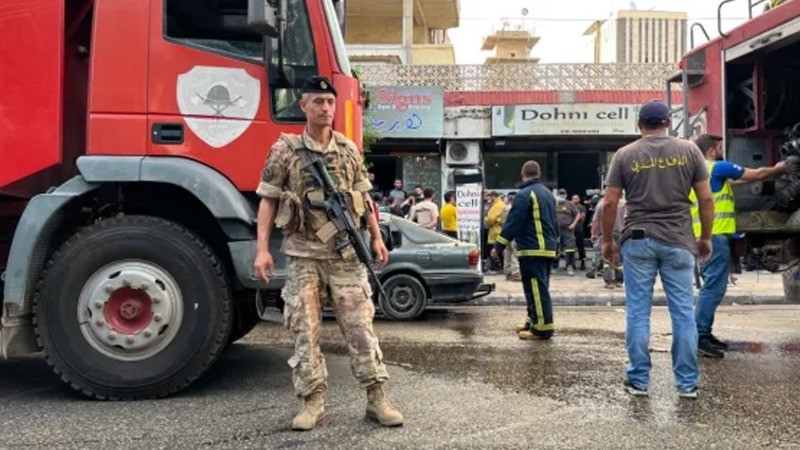
Lebanon is grappling with severe unrest following a series of explosions targeting electronic devices used by Hezbollah, suspected to be orchestrated by Israel. This latest crisis has resulted in numerous casualties and has exacerbated fears of a larger conflict. The attacks have revealed vulnerabilities within Hezbollah and left Lebanese civilians in a state of panic, fearing additional assaults.
The violence intensified with a new round of explosions that followed an earlier wave of deadly incidents. Within a day of hundreds of pagers detonating simultaneously across the nation, another wave of explosions struck Lebanon, killing at least 26 people and injuring thousands. The devices involved, crucial to Hezbollah's operations, included pagers, walkie-talkies, laptops, and solar panels. The targeted nature of these attacks has significantly heightened tensions between Hezbollah and Israel, who are long-standing adversaries.
Reports indicate that the explosions affected "portable two-way radios, laptops, and certain solar power setups," which were predominantly used by Hezbollah operatives. The detonations, which also ignited some vehicles, caused widespread chaos and fear among civilians. The blasts impacted not just Hezbollah's strongholds but also civilian areas including shops, homes, and hospitals, resulting in substantial casualties among the general public.
The sophistication of the operation has led to widespread speculation that Israel's intelligence agency, Mossad, may be behind the attacks. Lebanese media and security analysts suggest that Mossad orchestrated the detonations through a meticulously planned operation. According to reports, explosives were likely hidden within pagers during their supply chain journey before reaching Hezbollah. While the exact evidence remains unconfirmed, Mossad is widely suspected of being involved.
Gold Apollo, a Taiwanese manufacturer of pagers, disclosed that it authorized BAC Consulting KFT, a Hungarian firm, to label pagers sent to Hezbollah. However, Hungarian government spokesperson Zoltán Kovács clarified that the pagers never entered Hungary, and BAC Consulting only acted as a mediator. Kovács also noted that Hungary's national security services are collaborating with international partners to investigate the matter.
The explosions have not only resulted in a high number of casualties but have also instilled widespread panic among Lebanese civilians. The fear is so pervasive that residents are taking extreme precautions, including discarding electronic devices and unplugging home appliances. Journalist Hassan Harfoush described the situation as fraught with anxiety, with rumors circulating about potential risks from everyday items like solar panels and batteries.
Lebanon's healthcare system is under immense pressure as hospitals, particularly in Beirut, are overwhelmed with patients suffering severe injuries. Dr. Elias Warrak of Mount Lebanon University Hospital reported a significant number of patients requiring major surgeries due to severe shrapnel wounds.
The chaos has even disrupted funerals for victims of the earlier explosions, with reports of further blasts occurring during ceremonies. The Lebanese army has been deployed to handle the crisis, including conducting controlled detonations of suspicious devices. Despite these efforts, the sheer volume of electronic items in circulation complicates the process.
Hezbollah has vowed retaliation against Israel, and tensions are expected to rise. Iran, a key ally of Hezbollah, has condemned the attacks and promised retribution, further inflaming the situation. Israel, while remaining largely silent, has indicated that the conflict is entering a new phase, raising concerns about a broader regional war.
As Lebanon braces for potential further attacks, civilians are living in a constant state of fear, uncertain if any electronic device could be the next to explode. The ongoing violence has starkly highlighted Hezbollah's vulnerabilities and underscored the escalating threat of a full-scale regional conflict.
Are Solar Energy Systems the New Target in Lebanon’s Ongoing Conflict?
Hungary Rejects Claims of Involvement in Lebanon's Pager Blasts, Denies Manufacturing Roll